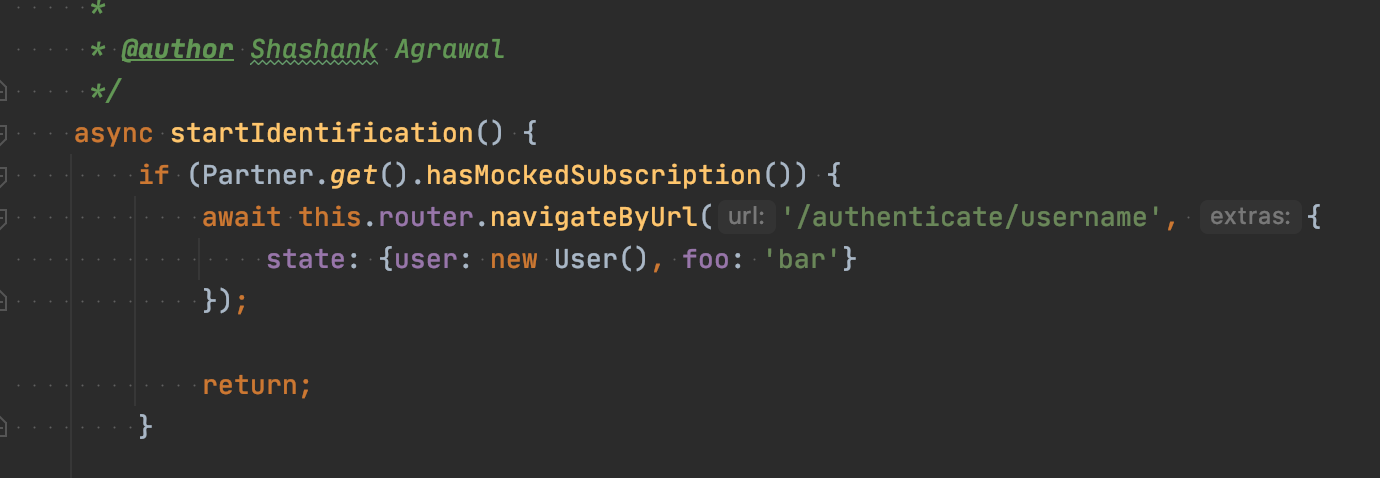In one of my Angular 2 routes's templates (FirstComponent) I have a button
first.component.html
<div class="button" click="routeWithData()">Pass data and route</div>
My goal is to achieve:
Button click -> route to another component while preserving data and without using the other component as a directive.
This is what I tried...
1ST APPROACH
In the same view I am storing collecting same data based on user interaction.
first.component.ts
export class FirstComponent {
constructor(private _router: Router) { }
property1: number;
property2: string;
property3: TypeXY; // this a class, not a primitive type
// here some class methods set the properties above
// DOM events
routeWithData(){
// here route
}
}
Normally I'd route to SecondComponent by
this._router.navigate(['SecondComponent']);
eventually passing the data by
this._router.navigate(['SecondComponent', {p1: this.property1, p2: property2 }]);
whereas the definition of the link with parameters would be
@RouteConfig([
// ...
{ path: '/SecondComponent/:p1:p2', name: 'SecondComponent', component: SecondComponent}
)]
The issue with this approach is that I guess I can't pass complex data (e.g. an object like property3) in-url;
2ND APPROACH
An alternative would be including SecondComponent as directive in FirstComponent.
<SecondComponent [p3]="property3"></SecondComponent>
However I want to route to that component, not include it!
3RD APPROACH
The most viable solution I see here would be to use a Service (e.g. FirstComponentService) to
- store the data (_firstComponentService.storeData()) on routeWithData() in FirstComponent
- retrieve the data (_firstComponentService.retrieveData()) in ngOnInit() in SecondComponent
While this approach seems perfectly viable, I wonder whether this is the easiest / most elegant way to achieve the goal.
In general I'd like to know whether I'm missing other potential approaches to pass the data between components, particularly with the less possible amount of code




Pass data using Query Parametersis what i was looking for. your link saved my day. – Astraphobiastatecheck the PR for more details. Some useful information here – Immeasurable